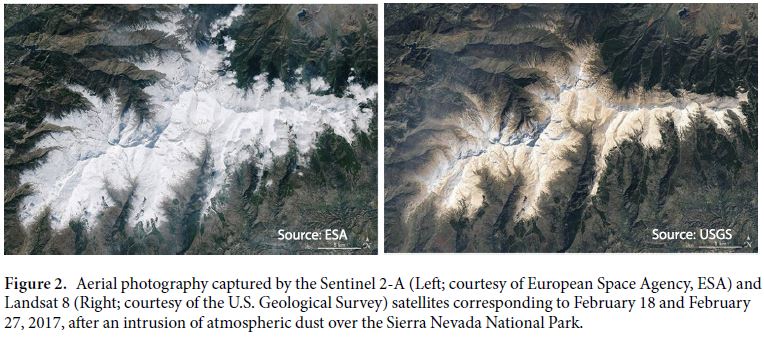| Custom Content |
Climate-driven shifts in algal-bacterial interaction of high-mountain lakes in two years spanning a decade
Juan Manuel González-Olalla, Juan Manuel Medina-Sánchez, Ismael L. Lozano, Manuel Villar-Argaiz & Presentación Carrillo - 2018
Las crecientes entradas de polvo sahariano rico en nutrientes y el incremento de temperatura asociados al cambio climático han modificado la relación alga-bacteria en las lagunas de Sierra Nevada.
| Algal-bacterial interactions include mutualism, commensalism, and predation. However, how multiple environmental conditions that regulate the strength and prevalence of a given interaction remains unclear. Here, we test the hypothesis that the prevailing algal-bacterial interaction shifted in two years (2005 versus 2015), due to increased temperature (T) and Saharan dust depositions in high-mountain lakes of Sierra Nevada (S Spain). Our results support the starting hypothesis that the nature of the prevailing algal-bacterial interaction shifted from a bacterivory control exerted by algae to commensalism, coinciding with a higher air and water T as well as the lower ratio sestonic nitrogen (N): phosphorous (P), related to greater aerosol inputs. Projected global change conditions in Mediterranean region could decline the functional diversity and alter the role of mixotrophy as a carbon (C) by-pass in the microbial food web, reducing the biomass-transfer efficiency up the web by increasing the number of trophic links. |
 |
|
